Civil Liberties, Human Rights, Political Prisoner, Supreme Court, Surveillance, Truth to Power
Podcast: Play in new window | Download
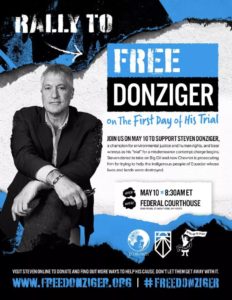
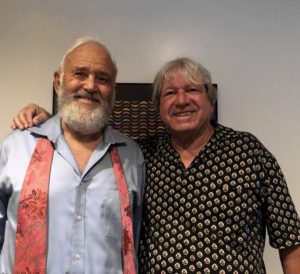
Steven Donziger Trial: Continued Coverage
As we continue our coverage of human rights lawyer Steve Donziger’s criminal contempt trial, we look back to the origins of case he brought against Chevron Oil. They go back to the late 1960s when Texaco first discovered oil in part of an Amazon rainforest in northeastern Ecuador. The US oil company went on to lord over decades of environmental destruction on a monolithic scale, dumping two or three Exxon Valdez’s worth of oil and toxic byproducts and despoiling an area the size of Rhode Island. Since then, the indigenous tribes in the area have been victims of by cancer and other illnesses caused by the pollution, they say. In 1993, two years after graduating from Harvard Law School, Donziger joined a lawsuit seeking to force Texaco to clean up the mess. In 2000 Chevron purchased Texaco. They spent upward of $1 billion in legal fees defending this case.
Donziger has broad support from celebrities, including Alec Baldwin and Susan Sarandon; dozens of Nobel laureates; and thousands of lawyers and law students globally. A handful of sympathetic Democratic lawmakers, including U.S. Rep. Alexandria Ocasio-Cortez, have written a letter to U.S. Attorney General Merrick Garland, asking him to look into the case. More than 200 attorneys with the International Association of Democratic Lawyers have filed a judicial complaint asking for Judge Kaplan to be taken off the bench.
Conversely, Chevron claims Donziger’s supporters are being duped by a con man. A few conservative outlets have reiterated that narrative. One National Review headline criticized the “Lefty Media” for championing the cause of “History’s Champion Scammer.”
DonzigerDefense.com
ChevronToxico.com
ChevronInEcuador.com
Guest – Attorney Martin Garbus, one of three pro bono lawyers representing Donziger in an attempt to get his law license restored. Garbus has a long and distinguished career as a civil rights and first amendment litigator.
—-
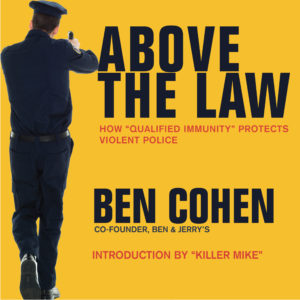
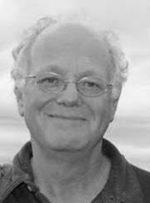
Above The Law: How Qualified Immunity Protects Violent Police
The 1967 judicially created doctrine of qualified immunity has been so broadly interpreted that it acts as a shield for policeman in all but the rarest of circumstances. Only when the exact same abusive behavior of a cop has already been deemed unconstitutional by a court in the exact same jurisdiction can a victim succeed in a civil lawsuit against an abusive police officer. A plantiff must show that government officials violated clearly established law to receive damages for harm.
The plaintiff wins only if a prior court found an official liable under a nearly identical fact pattern. This standard is virtually impossible to meet and the protections promised under section 1983 civil rights act are therefore largely symbolic.
Guest – Ben Cohen – cofounder and former CEO of Ben & Jerry’s Ice Cream. He is the founder of a variety of advocacy organizations and the author of several books including his latest titled Above The Law: How Qualified Immunity Protects Violent Police. Ben and his partner Jerry Greenfield are currently helping to lead the campaign to end qualified immunity.
—-


USPS Announces Closing Of 19 Mail Processing Plants
The US Postal Service advertises the official standard of delivering first-class mail — a typical letter with a 55-cent stamp—within “1-3 business days.” The News Department at WGBH Radio in Boston conducted its own test to see if this still holds true. News reporters and producers sent nearly 100 letters from different places in the metro area at various hours on the same day to their pick of correspondents in 38 states, creating a random sample. The letters were addressed to residents of large cities, suburbs and small towns. The Postal Service flunked the test. A little more than half of the letters arrived within the three-day window.
Slower delivery is just the tip of the Post Office’s problems. Things are going from bad to worse. The Postal Service issued a report titled Delivering for America calling for a reorganization that highlights something called shared sacrifice.
Many consider it an austerity plan to cover for de facto privatization. Critics say the plan will slow the mail, raise prices, and cut services. Since the report was published, the Postal Service announced the closing of 18 mail processing plants that will take place before November. Based on recent history, closing these plants will slow the mail and guarantee there will be problems with mail delivery during the peak season.
Guest – Chuck Zlatkin, legislative director of the New York Metro Area Postal Union.
—————————-
CIA Sponsored Terror, Civil Liberties, Criminalizing Dissent, Human Rights, Truth to Power
Podcast: Play in new window | Download
- Attorney Jim Lafferty Commentary on Solitary Confinement
—-


Steven Donziger Trial Set To Begin This Week
Sixty-year-old environmental lawyer Steven Donziger has been under house arrest without trial for the last 25 months on charges that normally have a max sentence of six months. To date this is the longest sentence imposed in New York on an attorney convicted of contempt. The contempt charges are from Donziger’s refusal to give his cellphone and computer to the court. We’ve been covering Chevron’s retaliation campaign against Donziger after he helped communities in Ecuador’s Amazon win a historic $9.5 billion judgment against the oil giant. His case showed how Chevron for deliberately dumped billions of gallons of carcinogenic oil water onto Indigenous ancestral lands. The multinational corporation enlisted 60 law firms and 2,000 attorneys to block Donziger’s advocacy. In the process they bankrupted his family, and intimidated environmental activists and allies internationally.
At last, Donziger’s trial is set to begin Monday, May 10. This case offers a play-by-play account of a private oil company set out to destroy an altruistic lawyer, environmental justice, corporate accountability, Indigenous rights, and free speech.
DonzigerDefense.com
ChevronToxico.com
ChevronInEcuador.com
Guest – Attorney Martin Garbus, one of three pro bono lawyers representing Donziger in an attempt to get his law license restored. Garbus has a long and distinguished career as a civil rights and first amendment litigator.
—-
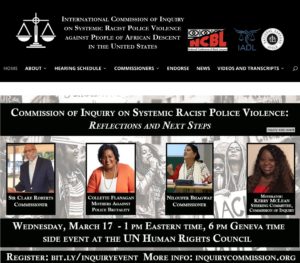

International Commission of Inquiry on Systemic Racist Police Violence in the US
As issues of violent policing nag at the American public’s consciousness, a new report finds the US guilty of crimes against humanity and other violations of international law. On April 27, the International Commission of Inquiry on Systemic Racist Police Violence in the US Released its final Report on Racist Police Violence in the US. The report pulls together weeks of live hearings chronicling cases of people killed by police with African descent. The report also contains recommendations addressed to national and international policy makers.
The International Commission of Inquiry was organized by the National Conference of Black Lawyers, the International Association of Democratic Lawyers, and the National Lawyers Guild. A distinguished panel of international legal experts from eleven countries served as Commissioners. The full 188-page document is available at the Commission’s website as are videos and transcripts from the live hearings in 44 cases.
Guest – Marjorie Cohn, professor emerita at Thomas Jefferson School of Law where she taught from 1991-2016, and a former president of the National Lawyers Guild. She lectures, writes, and provides commentary for local, regional, national and international media outlets. Professor Cohn has served as a news consultant for CBS News and a legal analyst for Court TV, and a legal and political commentator on the BBC, CNN, NPR, and other major stations.

Civil Liberties, Habeas Corpus, Human Rights, Surveillance, Truth to Power
Podcast: Play in new window | Download
- Attorney Jim Lafferty Commentary: 2021 Cold War
—-
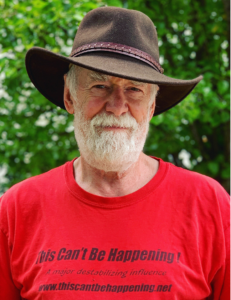

Journalist Put On FBI Terrorist Watch List Starts Class Action Case
Philadelphia-based journalist Dave Lindorff learned in spring 2019 that he was on the FBI’s Terrorist Watch List, used to require special searches of international fliers from and to the US. The list is readily accessible on computer to all domestic law enforcement agencies and most corporate security departments. Lindorff is about to bring a case against the US government over the list on First Amendment grounds.
Attorney Baruch Weiss, a partner at the major DC law firm, Arnold & Porter, is handling the case on a pro bono basis. Weiss was previously a deputy lead counsel to the Homeland Security Department shortly after it was created in the Bush/Cheney administration. He wants to add to the case any other plaintiffs who have First Amendment grounds for challenging their suspected inclusion on the list before filing the case in federal district court in Philadelphia later this spring, so that it will more likely have an impactful decision if the court finds the list to be unconstitutional.
Examples of First Amendment issues would be a journalist who has written stories that challenge one or another US government agency. If that was followed by a sudden inability to obtain a boarding pass online the day before the flight or being called to the gate on a return flight to the US undergoing a special inspection of person, carry-on luggage and electronics by special security personnel as happened twice to Lindorff. A First Amendment issue might involve being active in a human-rights or antiwar or other anti-establishment protest or advocacy organization and finding it suddenly difficult to obtain early boarding passes or being subjected to lengthy special inspections before being allowed to board a plane.
Guest – Dave Lindorff, contributor to The Nation, and writes for Salon, London Review of Books, and Counterpunch. He is founder of ThisCantBeHappening.net. Author of four books, Dave was a 1990s Hong Kong/China correspondent for Business Week.
—
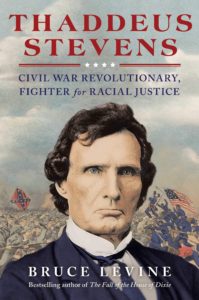
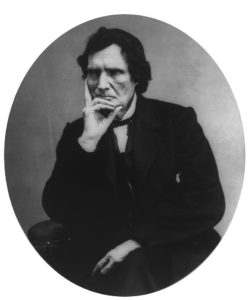
Stevens Thaddeus Stevens: Civil War Revolutionary, Fighter for Racial Justice by Bruce Levine
The 1861 to 1865 Civil War and the reconstruction period which followed it is widely considered to be the second American revolution. The slave-owning planter class in the south was defeated, at least for a while. Slave labor was abolished, but came back in other forms after reconstruction was crushed by 1877.
The promise of the declaration of independence that all men are equal before the law was fulfilled, at least for a while. Pennsylvania congressman Thaddeus Stevens was the foremost political leader in the struggle, even more than Abraham Lincoln. Stevens helped to bring about the abolition of slavery and was a leader in the effort during Reconstruct to make the United States a biracial democracy This wise and eloquent revolutionary has been vilified and rendered rendered obscure during most of the years since he died 153 years ago.
The distinguished historian Bruce Levine in his just published biography of Stevens “Thaddeus Stevens: Civil War Revolutionary, Fighter for Racial Justice” has secured a place for him alongside his contemporary John Brown in the pantheon of American revolutionary figures.
Guest – Bruce Levine, emeritus professor of history at the University Illinois and the author of four previous books on the Civil War era.

————————————-
Civil Liberties, Habeas Corpus, Human Rights, Supreme Court, Truth to Power
Podcast: Play in new window | Download
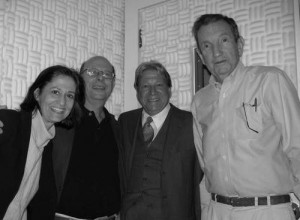
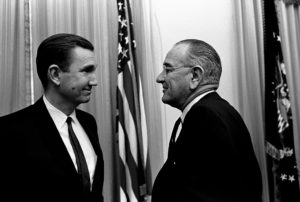
Remembering Attorney Ramsey Clark
Our friend and colleague Attorney Ramsey Clark died in his home in Greenwich Village from complications from a fall last Friday, April 9, 2021. He was 93 years old. He came from a prominent New Deal Texas family. His father Tom Clark had been the Attorney General of United States and then served on the Supreme Court. The Clark family and the Lyndon Johnson family were friends and political allies.
Lyndon Johnson appointed Ramsey Clark to be the US Attorney General. He served in that position for 18 months severely disappointing Johnson who remarked that he thought he was appointing Tom Clark’s son. “I was wrong.“ said Johnson. Clark opposed the death penalty and declared a moratorium on it when he was in office. He opposed wire tapping.
He supported the civil rights movement and helped draft the historic Civil Rights Act of 1964 and 1968 and the Voting Rights Act of 1965. He was a key person empowering federal desegregation orders. At a cabinet meeting he declared his opposition to the war in Vietnam. That was the last cabinet meeting, he told us, that Johnson ever invited him to.
He also disappointed and baffled many on the left when he took up representation of such figures as Shaikh Abdul Rahman, Milosevich and Saddam Hussein. Clark said they deserved competent counsel.
Guest – Attorney Mara Verheyden-Hilliard, with the Partnership for Civil Justice Fund, that is partnering with the newly-formed Center for Protest Law and Litigation, to demand a fully public investigation into law enforcement’s handling of the riot on the Capitol Building on that day that shocked much of the nation.
Guest – Attorney Alan Levine, a law partner of Ramsey Clark’s for five years in the firm Clark, Wulf, and Levine. He worked as an attorney with the New York civil Liberties Union and the Puerto Rican Defense Fund.
Guest – Ralph Nader, one of the nation’s most effective and well-known social critics. He has raised public awareness and increased government and corporate accountability. As a young lawyer in 1965 he made headlines with his book Unsafe at Any Speed, leading to congressional hearings and passage of a series of life-saving auto safety laws in 1966. His example has inspired a generation of consumer advocates, citizen activists and public interest attorneys. Full biography.
Past interviews with Attorney Ramsey Clark
Law and Disorder June 24, 2013
Law and Disorder January 21, 2013

———————————————
Civil Liberties, Criminalizing Dissent, Human Rights, Surveillance, Torture, Truth to Power
Podcast: Play in new window | Download
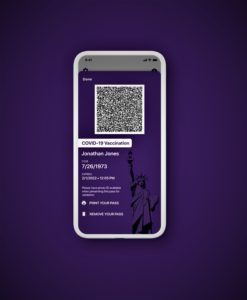

Vaccine Passports, Privacy And Civil Liberties
New York State became the first in the country to premier a Covid-19 vaccine passport. They call it the Excelsior Pass and proponents say it’s a safe and efficient way for people to return to sporting events, concerts, Broadway theaters and other large group settings. You show a QR code proving a recent negative test or full vaccination.
The pass is voluntary and lets New Yorkers upload their official results—from a number of different vaccination sites and labs—into the system to verify that the person holding the pass meets the standards for entry. The state first used the pass at a Buffalo Bills football game in January after which they monitored attendees for 14 days after and discovered “almost negligible” transmission.
Registration in the program requires three pieces of information: Name, date of birth, and zip code. The pass is matched to vaccination and testing records using a series of questions to prevent fraud. When the person arrives at a venue, all they have to do is show a photo ID with their code, which will generate a green check mark at the venue.
New York state officials say they’ve been in close talks with surrounding states about integrating systems, but their neighbors say it’s not the priority. What are vaccine passports and who is considering implementing them? Connecticut, for example says it doesn’t have immediate plans to roll out a vaccine passport, although Governor Ned Lamont has said it’s possible to see private sector solutions if demand grows and if the technology is proven effective.
Guest – Attorney David J. McGuire, executive director of the ACLU of Connecticut. McGuire also is the chair of the Connecticut Special Advisory Committee to the U.S. Commission on Civil Rights, serves on the state’s Racial Profiling Prohibition Project Advisory Board, and is a member of the Commission on Racial and Ethnic Disparities in the Criminal Justice System.
—-
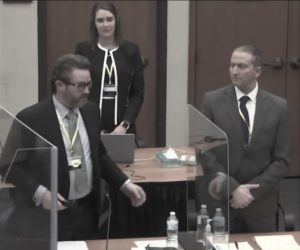
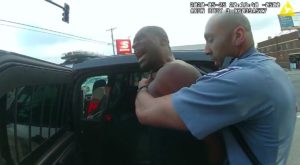
Attorney Flint Taylor : Police Brutality And The Derek Chauvin Trial
The cruel and sadistic police murder of George Floyd last June on a Minneapolis sidewalk was videoed by a courageous 17 year old bystander. Her video was viewed by Americans across the country and the world. It captured Minneapolis police officer Derek Chauvin, smirking, with one hand in his pocket as he knelt for 9 minutes and 29 seconds on George Floyd’s neck. Floyd was handcuffed behind his back and restrained by two other police officers at the time. He begged for his life, called for his mother, and repeatedly said “I can’t breathe!”
Onlookers gathered in protest as the murder progressed but their intersession was of no avail. George Floyd‘s life drained out of him. He lost his pulse. Still Chauvin persisted, kneeling on a dead man. An ambulance came to take away George Floyd’s corpse.
People responded, it was massive and sustained. In some two thousand cities across America 20 million people, white and Black , Black lead, protested in the streets. More than demanding that George Floyd’s killer be brought to justice, they demanded that police departments be defunded, that police be controlled by the community, and that ending police murders of Black people be brought to halt once and for all.
We are now in the midst of the trial of killer cop Derek Chauvin. Millions of Americans are watching the trial. It seems to them that this latest racist police outrage is the culmination of so many past murders. They are asking, what is to be done?
Guest – Attorney G. Flint Taylor is a founding partner of the People Law Office in Chicago starting out over 50 years ago representing the family of Black Panther leader Fred Hampton, Who was assassinated by the Chicago Police Department with the help of the FBI. He has represented numerous police torture survivors during the past 33 years. Taylor was one of the lawyers involved in the struggle for reparations and has chronicled the decade long fight against Chicago police torture in his award-winning book “The Torture Machine : Racism and Violence in Chicago.

—————————————–
CIA Sponsored Terror, Civil Liberties, Crony Capitalism, Habeas Corpus, Human Rights, Political Prisoner, Supreme Court, Surveillance, Truth to Power, War Resister
Podcast: Play in new window | Download
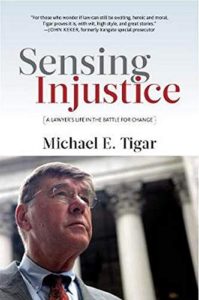
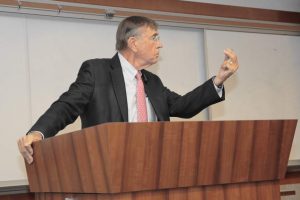
Sensing Injustice: A Lawyer’s Life And The Battle For Change
We are going to spend the entire hour with attorney Michael Tigar to discuss his just published magnificent memoir Sensing Injustice: A Lawyer’s Life And The Battle For Change.
By the time he was 26, Michael Tigar was a legend in legal circles well before he would take on some of the highest profile cases of his generation. In his first US Supreme Court case, at the age of 28, Tigar won a unanimous victory that freed thousands of Vietnam war resistors from prison. Tigar also led the legal team that secured a judgment against the Chilean Pinochet regime for the 1976 murders of dictator Pinochet opponent Orlando Letelier and his colleague Ronnie Moffit in a Washington, DC car bombing.
He then worked with the lawyers who prosecuted Pinochet for torture and genocide. A relentless fighter of injustice, Tigar has been counsel for Angela Davis, Jamil Abdullah Al-Amin (H.Rap Brown). Tigar the Chicago Eight, and leaders of the Black Panther Party, to name only a few. His book is about stories, people stories of injustice, struggle, and sometimes vindication as he put it. Michael Tigar is a magnificent storyteller with a dry wit and a prodigious memory. Monthly Review link to Sensing Injustice
Guest – Constitutional attorney Michael Tigar, professor emeritus from The Washington College of Law and has taught at the University of Texas and Duke University. He has practice before the Supreme Court, arguing his first case when he was 24 years old. Tigar has written or edited more than a dozen of important books including “Law and the Rise of Capitalism.“ He has worked for over 50 years with movements for social change as a human rights lawyer, law professor, and writer. Since 1996 he has practiced law with his wife Jane B. Tigar. Michael Tigar’s blog Tigarbytes.

———————————–





















